








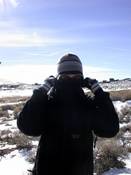





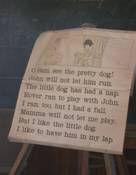






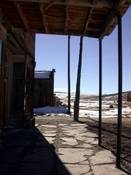
















"Falwell announces new coalition to build on evangelical momentum
By HANK KURZ Jr. / Associated Press 11/09/2004
Trying to seize on the momentum of a presidential election in which moral values proved important to voters, the Rev. Jerry Falwell announced Monday that he has formed The Faith and Values Coalition to guide an "evangelical revolution."
Falwell, a religious broacaster based in Lynchburg, Va., founded and led The Moral Majority from 1979-89, which was credited with boosting conservatism nationwide.
He said the new coalition will have a three-pronged mission that includes ensuring that pro-life conservatives are chosen to fill any vacancies that emerge on the U.S. Supreme Court, a Constitutional amendment banning same-sex marriage and the election of another conservative president in 2008.
"The group's central premise is to utilize the momentum of the November 2 elections to maintain an evangelical revolution of voters who will continue to go to the polls to `vote Christian,'" the 71-year-old Falwell said in a statement released Monday night.
He called the organization a "21st Century resurrection of the Moral Majority," and said he is committing himself to a four-year stint as its national chairman."
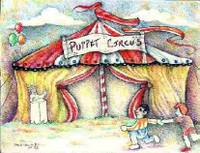

"REALITY-BASED COMMUNITY"This madness is rooted the neoconcervative program of Perception Management. George Orwell with his Newspeak has nothing on these guys.
"In the summer of 2002, after I had written an article in Esquire that the White House didn't like about Bush's former communications director, Karen Hughes, I had a meeting with a senior adviser to Bush. He expressed the White House's displeasure, and then he told me something that at the time I didn't fully comprehend -- but which I now believe gets to the very heart of the Bush presidency.
The aide said that guys like me were 'in what we call the reality-based community,' which he defined as people who 'believe that solutions emerge from your judicious study of discernible reality.' I nodded and murmured something about enlightenment principles and empiricism. He cut me off. 'That's not the way the world really works anymore,' he continued. 'We're an empire now, and when we act, we create our own reality. And while you're studying that reality -- judiciously, as you will -- we'll act again, creating other new realities, which you can study too, and that's how things will sort out. We're history's actors . . . and you, all of you, will be left to just study what we do.'"


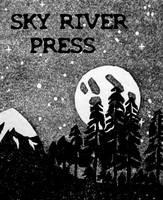



from The Notebooks of Malte Laurids Brigge
...Ah, poems amount to so little when you write them too early in your life. You ought to wait and gather sense and sweetness for a whole lifetime and a long one if possible, and then, at the very end, you might perhaps be able to write ten good lines. For poems are not, as people think, simply emotions (one has emotions early enough) – they are experiences. For the sake of a single poem, you must see many cities, many people and Things, you must understand animals, must feel how birds fly, and know the gesture which small flowers make when they open in the morning. You must be able to think back to streets in unknown neighborhoods, to unexpected encounters, and to partings you had long seen coming; to days of childhood whose mystery is still unexplained, to parents whom you had to hurt when they brought in a joy and you didn’t pick it up (it was a joy meant for somebody else – ); to childhood illnesses that began so strangely with so many profound and difficult transformations, to days in quiet, restrained rooms and to mornings by the sea, to the sea itself, to seas, to nights of travel that rushed along high overhead and went flying with all the stars, - and it is still not enough to be able to think of all that. You must have memories of many nights of love, each one different from all the others, memories of women screaming in labor, and of light, pale, sleeping girls who have just given birth and are closing again. But you must also have been beside the dying, must have sat beside the dead in the room with the open window and the scattered noises. And it is not yet enough to have memories. You must be able to forget them when they are many, and you must have the immense patience to wait until they return. For the memories themselves are not important. Only when they have changed into our very blood, into glance and gesture, and are nameless, no longer to be distinguished from ourselves – only then can it happen that in some very rare hour the first word of a poem arises in their midst and goes forth from them.”
– Rainer Maria Rilke